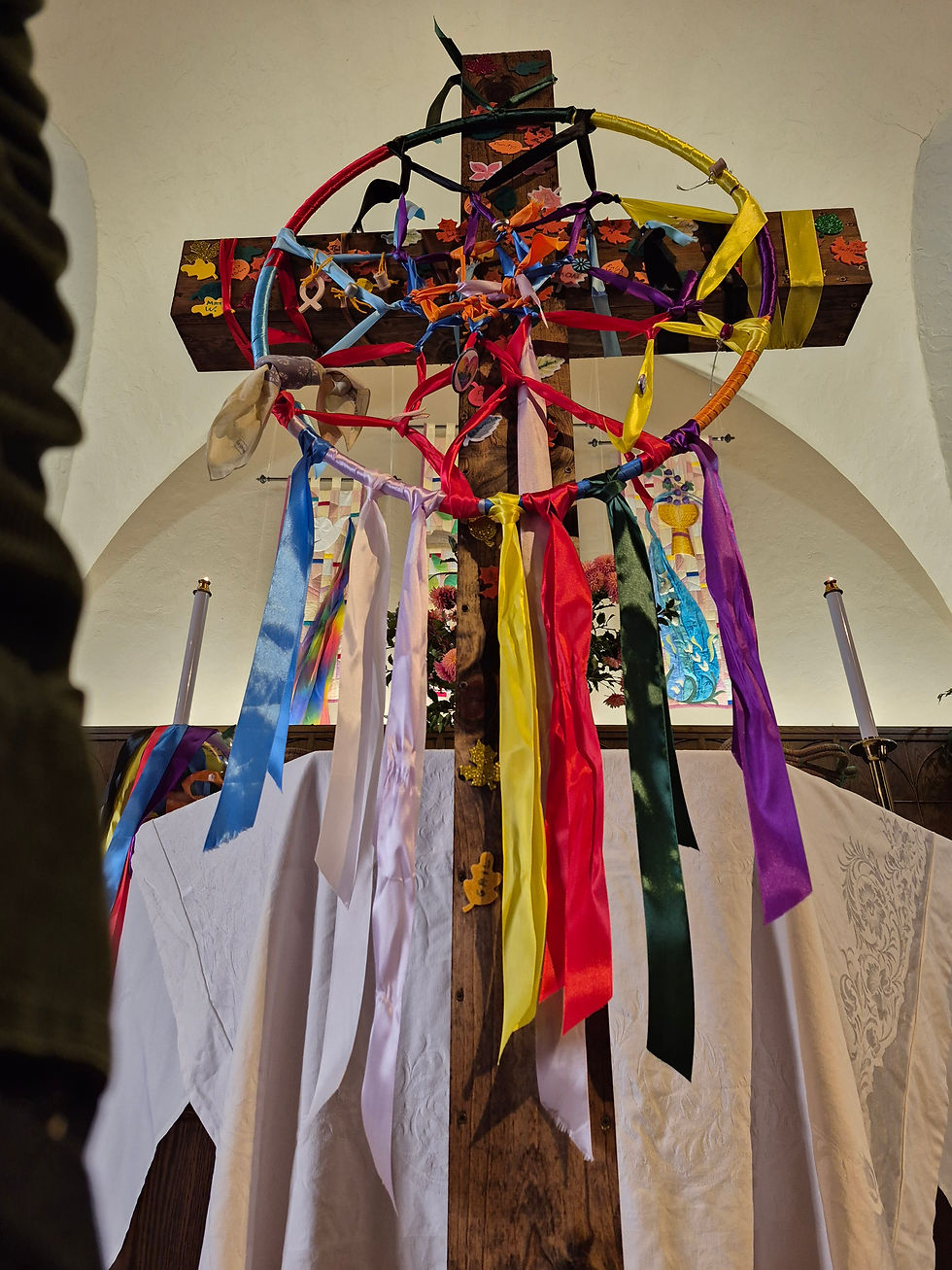Earworms and Dreaming
- Office

- Nov 13, 2025
- 3 min read

For two weeks I’ve had our Stewardship theme song in my ear—an earworm of the holiest kind. I wake up with it wafting through my thoughts, a soft thread weaving through other visions I can’t quite remember. It lingers in the background when I catch a news item that feels dystopian: ICE menacing people simply going about their daily lives, families queuing for food as the meager assistance they receive is cut off; neighbors facing health insurance increases that will force them to choose between housing and healthcare.
...Holy Spirit, help us dream of a world where there is justice and where everyone is free…
The refrain pulls at my heart as I watch what feels like the end of the “Great American Dream," a national mythology that has never fully matched the lived reality of the vast majority of my fellow citizens. And yet, as a late Baby Boomer, someone whose parents had modest incomes, I was still able to have a family, buy a home, and put something away for retirement. I lived most of my life in a world where reproductive and religious freedom were assumed; where scientific consensus guided public life, and where the moral arc of history seemed to be bending toward a truly multiracial democracy.
But these days I find myself returning again and again to the Book of Isaiah.
Isaiah is not a single voice but a collection of prophetic voices whose words span the decades before the Babylonian exile, through the trauma of exile, and into the tentative hope of return. (Scholars often speak of First Isaiah [Isaiah 1–39], Second Isaiah [40–55], and Third Isaiah [56–66], representing these eras.) Throughout these writings, the prophets speak to rulers who have lost their moral compass, to elites who insulated themselves from the suffering of the people, and to communities who bore the brunt of imperial domination. Their voices rise across time: warnings, lament, and finally a fierce and fragile hope.
Learn to do good; seek justice, rescue the oppressed, defend the orphan, plead for the widow. Isaiah 1:17
I think of the people left behind in Jerusalem: the ones not carried off to Babylon, who had to rebuild community without the Temple that had anchored their identity. They created new forms of commerce, new systems of care, and new ways of praying when the old ways were no longer possible. They learned to find God not in a building but in the fragile webs of mutual support that kept them alive.
And then I think of our moment:
this strange national disorientation,
this grief over what feels lost or endangered,
this ache for what could have been.
The Psalmist captures this grief with haunting clarity:
By the rivers of Babylon, there we sat down and wept when we remembered Zion.
And yet, even in their grief, the exiles did not abandon hope. They dared to imagine a future beyond their present despair. They dreamed of return, of restoration, of justice rolling down like waters. They dreamed, knowing they themselves might never see the fulfillment of their dreams.
This is one of the most enduring truths of scripture: God’s dreams are often multi-generational.
Think of the abolitionists who fought for a freedom they would not live to witness. Think of the century-long struggle between Reconstruction and the Voting Rights Act. Think of every movement for justice that began in lament but did not end there, or with the people who began the fight.
And this brings me back to the lyric that has been my constant earworm the past two weeks:
...the world will change when we dream God’s dream.
Not because dreaming replaces action, but because dreaming guides it.
Dreaming keeps us from surrendering to despair.
Dreaming roots us in the long arc of God’s work in the world,
work that stretches beyond our own lifetimes.
So, we hold our grief honestly, but we refuse to let it define the future.
We dare to keep imagining.
We dare to keep building.
We dare to keep dreaming the dreams God plants in us
for generations yet to come.
And as a prayer for that courage, I offer the full chorus from Dream God's Dream by Bryan Sirchio that has been carrying me through these days:

Dream God's dream
Holy Spirit, help us dream
of a world where there is justice
and where everyone is free
to build and grow and love
and to simply have enough
the world will change
when we dream God’s dream.
Come sing it with me, online or in person. And may this earworm bring dreams filled with freedom, justice and enough for all.
With passion and hope,
Pastor Robin
.png)



Comments